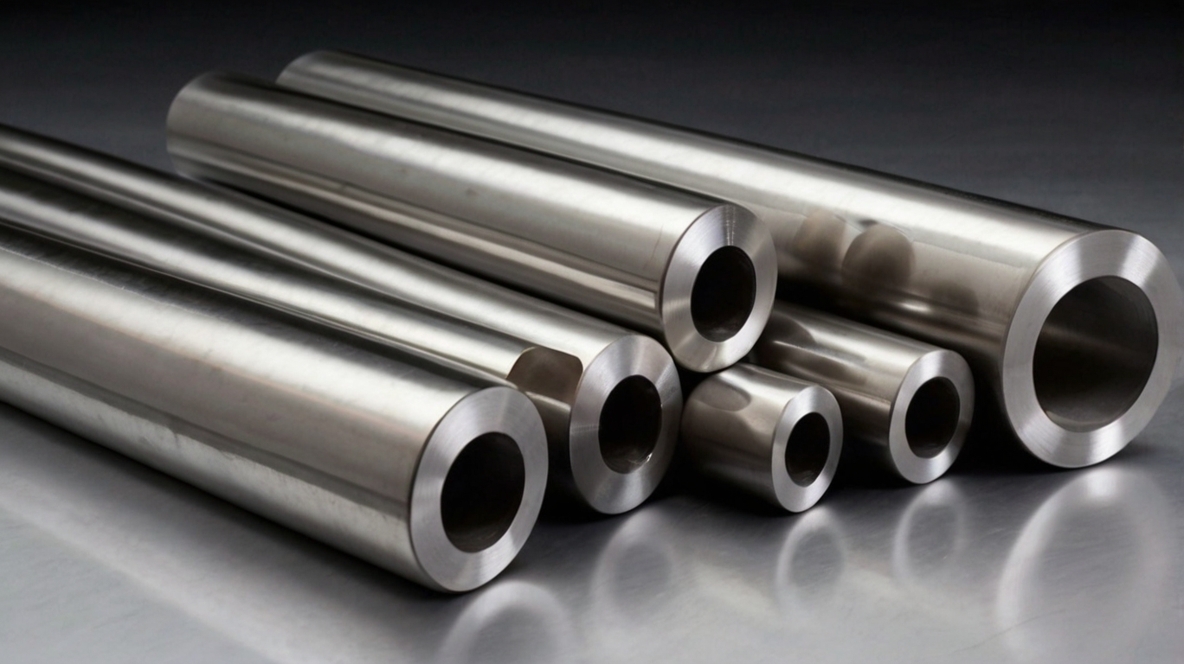Understanding High Quality Stainless Steel Hollow Bar
When sourcing materials for critical applications, specifying a High Quality Stainless Steel Hollow Bar is paramount. Quality in this context refers to several key attributes beyond just the base material grade. It encompasses stringent control over chemical composition, ensuring consistency and adherence to standards like ASTM or EN. Furthermore, high quality implies superior manufacturing processes, such as seamless extrusion or precision piercing and rolling, which result in excellent concentricity, uniform wall thickness, and a smooth surface finish, free from defects.


Dimensional accuracy is another crucial factor. High-quality bars exhibit tight tolerances on outer diameter (OD), inner diameter (ID), and wall thickness, minimizing variations along the length. This precision reduces machining time and waste in subsequent processing steps. Verification through rigorous testing, including non-destructive testing (NDT) like ultrasonic or eddy current testing, and comprehensive material test certificates (MTCs) conforming to EN 10204 3.1, are hallmarks of a truly high-quality product. Choosing a high quality stainless steel hollow bar ensures reliability, longevity, and optimal performance in demanding environments.
Key Quality Indicators:
| Parameter | Standard Quality | High Quality |
|---|---|---|
| Chemical Composition | Within Standard Range | Tightly Controlled within Standard |
| Dimensional Tolerance | Standard ASTM/EN | Tighter than Standard / Custom |
| Concentricity/Eccentricity | Standard Limits | Improved / Low Eccentricity |
| Surface Finish | Standard Mill Finish | Smooth, Defect-Free |
| Certification | Basic Compliance | EN 10204 3.1 MTC, NDT Reports |
Understanding High Quality Stainless Steel Hollow Bar — This article provides a practical buyer‑focused overview with specifications, selection tips, and on‑site considerations. Explore related topics: blog.
Key Specifications and Standards
- Standards: ASTM / EN / JIS (e.g., ASTM A240/A36, EN 10088/10025, JIS G4304/G3131).
- Surface options: 2B, BA, No.4, HL, mirror; galvanized (electro / hot‑dip).
- Processing: hot‑rolled, cold‑rolled, annealed & pickled, welded or seamless.
- Typical services: slitting, shearing, cut‑to‑length, drilling, beveling, deburring.
- Documentation: MTC, CO, packing list with net/gross weight and heat numbers.
Typical Applications
Construction, machinery, automotive, energy, enclosures and fencing, food equipment (for stainless), and general fabrication. Match grade and finish to corrosion, strength, and appearance requirements.
Selection Guide
- Use certified material with Mill Test Certificate (MTC).
- Confirm standards (ASTM/EN/JIS) and tolerances per drawing.
- Match surface finish to application (2B/BA/No.4/galvanized).
- Specify dimensions and acceptable deviation upfront.
- Plan packaging and corrosion protection for transit.
Processing, Packaging and Logistics
We adopt edge protection, waterproof wrapping, rust‑inhibiting paper, fumigated pallets, and strapping suitable for sea freight. Loading photos and weight lists are provided for each shipment.
FAQs
Q: What lead time can I expect?
A: Typically 7–15 days ex‑works for standard sizes; custom processing may extend the schedule.
Q: Can you provide cut‑to‑size service?
A: Yes. We slit, shear, cut, drill, bevel and deburr to drawing to reduce waste and speed installation.
Q: How do you ensure quality?
A: Incoming inspection, process control, and final inspection with traceable heat numbers; third‑party inspection is available.
Q: Do you support small trial orders?
A: We support pilot quantities with consolidated shipping to control cost.
All values are typical and for guidance only; confirm with the datasheet and purchase order before production.
Related products: view details.
Related products: view details.



